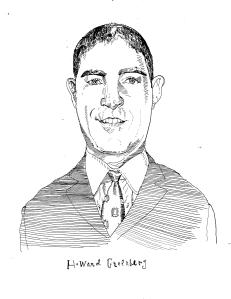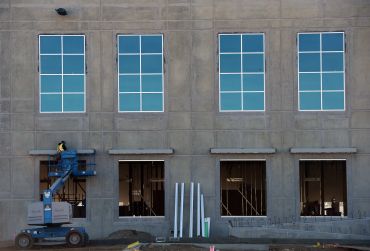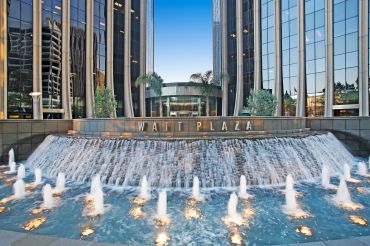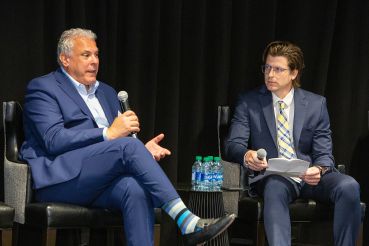 The Commercial Observer: Your PR people say you’ve sold more parking garages than anybody else in New York City history. How many have you done in your career?
The Commercial Observer: Your PR people say you’ve sold more parking garages than anybody else in New York City history. How many have you done in your career?
Mr. Greenberg: I’ve been in real estate for 25 years so I’m not really sure, but over a couple hundred maybe—less than 500, but more than a couple hundred. That’s including selling parking lots for developers, or garages, or reselling the same garage. We sold a package of 11 garages a few years ago and then resold 50 percent to an operator, who became partners with the owner. They resold three recently, and then I resold another of them. Eleven garages caused maybe 18 transactions.
Has the Great Recession impacted garages the way it has other real estate sectors?
Yeah. People don’t have the cars like they used to. And when Lehman Brothers closed, the parking lots in that area got destroyed. Also, you know, in a high economy, people will rent cars, they’ll buy cars and they’ll have weekend cars. Now everybody’s cutting down on what’s not necessary.
Are there other examples similar to what happened with the Lehman garages?
When Mayor Bloomberg closed Times Square [to create a pedestrian walk], garages in that area were affected. There were garages that got killed over there. But there were garages north of it that benefited because people parked on 49th Street to walk down. Also, with that commuter law that was supposed to be below 59th Street, a lot of landlords looking to lease their spaces had troubles because the parking guys didn’t know if it was going to be part of that commuter tax, or if the Bloomberg administration was going to charge people to drive into certain parts of the city.
What are the trends right now?
I think operators are looking more to manage because they don’t have to put up money, but they take over new locations with the hope that if it ever turns into a lease, they’ll be the first one to have an opportunity to lease it.
Did you set out to be a parking garage broker?
No, I just set out to call the owners to see if they wanted to sell. I’ve sold apartment buildings, I’ve sold office buildings, but I really fell into the parking by accident. I was interested in the development deals just because there were fewer complications in obtaining the information. I could call up a parking lot and know more about it than other properties. The only thing I wouldn’t know is the tenant information, but it would usually be one tenant operating it, as opposed to an apartment building with multi tenants, where you don’t know their income and so forth. The parking is the bread and butter. Development is how I make good money.
What is the biggest change from when you started?
Landlords are more educated of what they have. Twenty years ago, a parking operator would bid on a garage that said 75 cars licensed, but they could hold 120 cars—so they made a 45-car profit. Landlords found out about that and now they go by the space. Then operators figured out they could get the lifts, the stackers, so they added a couple more cars, but the landlords figured that out. Landlords usually make sure the operator doesn’t make money right away. In the past, the operator would automatically make money, and leases have become shorter in Manhattan.
How short?
In the past, people would sign 20-year leases, or even longer. Now, 10 or 15 years.
Is there an area within the five boroughs that has yet to be saturated by garages?
I’d say 95 percent of my business is in Manhattan. I’ve done deals in the boroughs, but it’s usually by referral. Lately, Brooklyn and Queens, I’ve gotten a lot of referrals in the Flatbush area and downtown Brooklyn. They’re mainly development deals. New construction. I just got hired by the Clarett Group to handle their parking garage at the Brooklyner. It’s the tallest building in Brooklyn.
Tell me about some of your most recent transactions this year.
I leased a garage on 38th Street, between Ninth and 10th, and that was 54,000 feet. So that’s a little bit on the large size for underneath the building, but they were experienced builders, so they knew how to maximize the basement space. It’s a tough area, because it’s near the convention center, and unless you operate in that area, it’s tough to understand the flow of the income. Because when there’s an event, they make a large portion of the yearly income, and when there’s not an event, you have to know the locals, have accounts, and it can be really quiet. This guy’s been there a long time, so he’s had other places, so he’s developed a knowledge of the area. The stores, the trucking companies … It’s just like networking.
Will we be seeing more parking garages sprouting up in the near future?
I think Bloomberg would like to see less parking garages and more income for the city. Without the influence of the government, naturally, developers make money by putting parking facilities into basement space that’s otherwise not usable a lot of the times unless they have a retail tenant that needs the space. Retail’s more valuable.
You work with your ex-wife, broker Anne DeMarzo.
I say she’s like my wife because we see each other every day; we don’t speak to each other; we split our income; and we don’t have sex with each other.
How’s that working out?
It’s got its ups and downs.
Do you share an office?
We did share an office. It was on the Upper East Side, but it became a little obsolete to work there when most of our business was on the West Side. So now we’re in separate offices, but we’re working together. And that works out really well!
jsederstrom@observer.com


